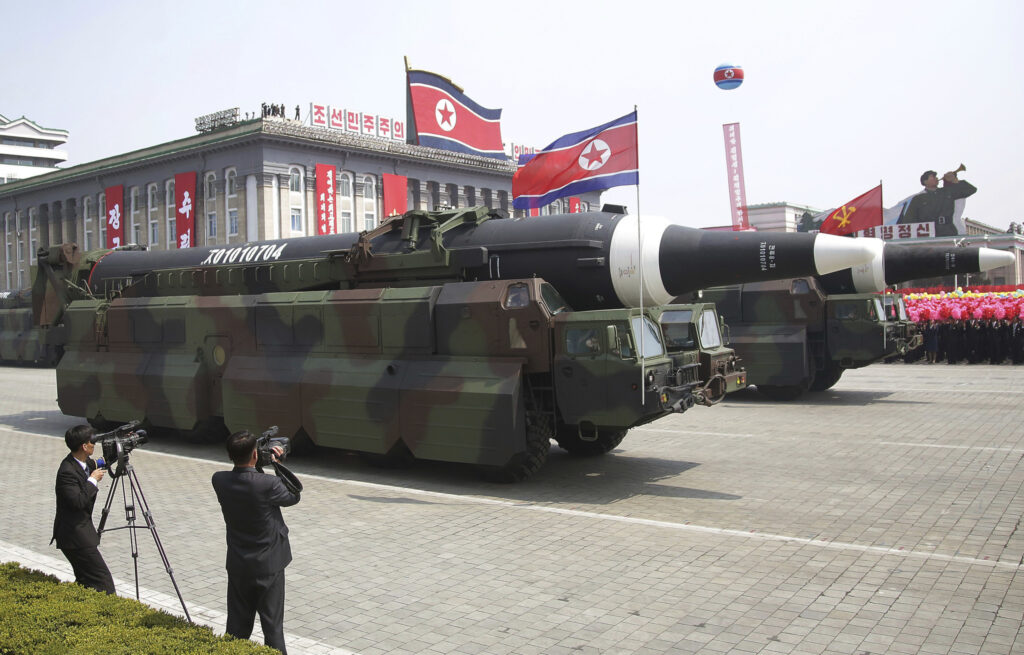
From supersonic missiles to cruise missiles, North Korea began 2022 with its most intensive weapons tests in recent years, but analysts say the successive tests are more of a domestic political ploy than a diplomatic game.
A decade after Kim Jong Un came to power as North Korea’s leader, the country has little to celebrate. The country’s deplorable economic situation under sanctions has been exacerbated by the conditions created by the corona. Food shortages are common at home and the door to diplomacy with the United States is closed abroad.
According to some analysts, the situation in North Korea may be the answer to why North Korea has conducted five missile tests in the past three weeks.
“The development of missiles and weapons is probably the only thing that Kim Jong Un can confidently demonstrate as an achievement,” said An Chan Chan, a North Korean fugitive researcher. “He has nothing more to offer the people of North Korea at the moment.”
The Pyongyang rocket show is all the more significant as the country prepares to celebrate the 80th birthday of Kim Jong Il’s father, former leader Kim Jong Il, in February, as well as the 110th birthday of Kim Il Sung, leader and founder of the regime and grandfather. The current leadership of the country is preparing in April.
The development of missiles and weapons is probably the only thing that Kim Jong Un can confidently demonstrate as an achievement. He currently has nothing more to offer the people of North Korea.
Cheung-sung Chang, of the Center for North Korean Studies at the Sejong Institute, told AFP that holding a “grand” birthday party for Kim Jong Il was politically important in the North Korean system.
“For such important anniversaries, North Korea would like to hold a military parade to showcase its new weapons,” he said.
Chang added that the country often tests new weapons before they are released to the public, which both demonstrates their potential and boosts the mood for public celebrations.
Pyongyang has not tested intercontinental ballistic missiles or nuclear missiles since 2017, thanks to Kim’s meetings with former US President Donald Trump and high-level diplomatic steps.
But last week, the North Korean regime announced that it would resume all suspended activities in response to provocative US sanctions.
The last time North Korea tested this number of weapons in a month was in 2019, after the failure of talks between Kim and Trump.
time flies
As food prices plummet and famine intensifies, economically devastated Pyongyang resumed cross-border trade with its neighbor China earlier this month.
Leif Eric Easley, a professor at Oha University in Seoul, says Pyongyang’s recent decision to accept Chinese aid, the first since the outbreak began, may be motivated by a display of recent military and missile power, “to prevent weak “Reaching an opinion.”
With Beijing set to host the Winter Olympics in early February, North Korea does not want to anger its only main ally – China – with its rain missile in the run-up to the upcoming elections, so North Korea has a narrow window to show. He has anger in front of him.
“North Korea probably has to fire missiles to test and improve its military capabilities while sending signals ahead of the March 9 presidential election in South Korea before the opening ceremony of the Beijing Olympics on February 4.”
He said the recent series of launches was unlikely to be negotiated directly and solely to push US President Joe Biden’s administration.
Pyongyang “does not seem to be interested in negotiations while isolated from Covid.”
“Thanks to Beijing’s strong support, which sees North Korea as a useful buffer in areas full of US allies such as Tokyo and Seoul, the diplomatic cost of recent tests for Kim is negligible,” said Yang Moo-jin, a professor of North Korean studies.
China is blocking any attempt to impose new sanctions over short-range missile tests, but if North Korea pursues its threat to resume long-range or nuclear tests, Beijing’s help will be virtually impossible.
“Missed Opportunities”
Washington has repeatedly stated that it is ready to resume talks. “The Biden administration has been very clear about our goals: we have no hostile intentions toward the North Korean People’s Republic and we are ready for diplomacy,” State Department spokesman Ned Price told reporters on Tuesday.
Jenny Town, a senior fellow at the Stimson Center, says the likelihood of any real progress on the diplomatic front is “very low.”
“The United States has really missed opportunities to bring North Korea back to the negotiating table,” he said. There is no strong political motivation in the United States to do so. “They are not willing to spend their political capital on North Korea.”


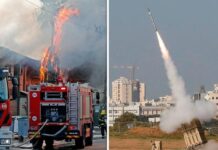
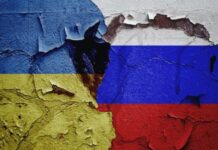
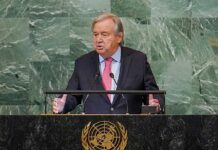
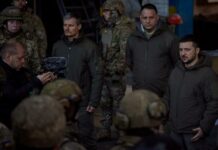

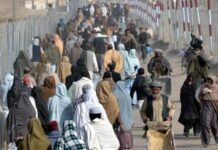



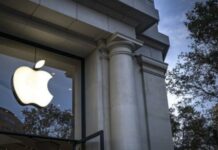

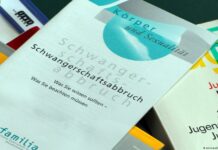






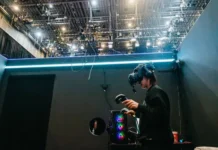









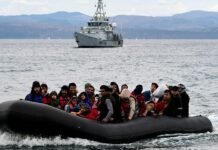

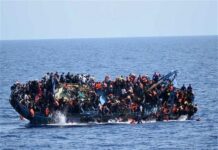

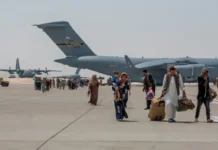






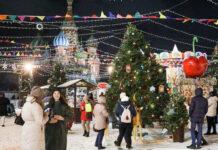
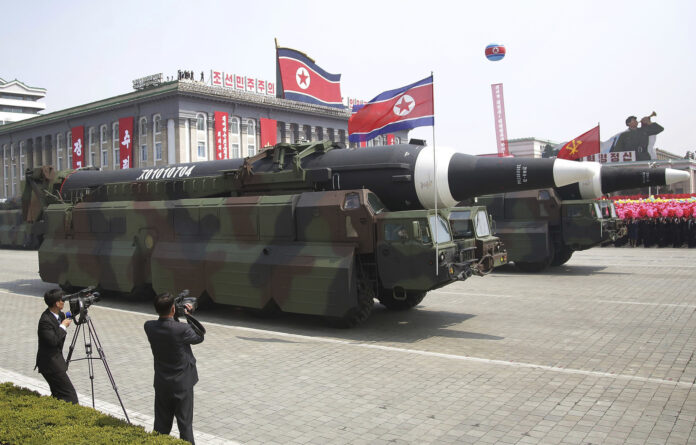

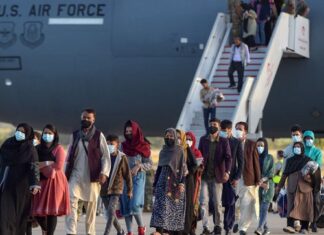


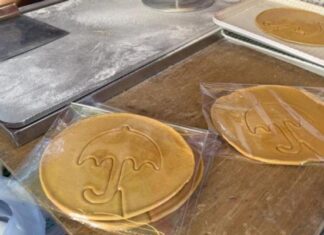
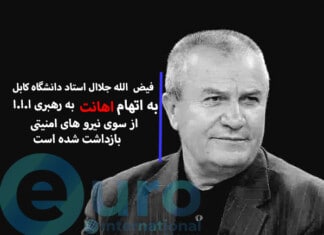
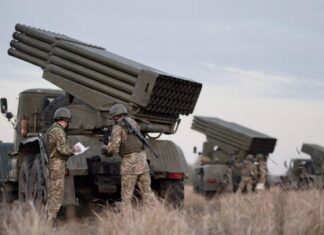






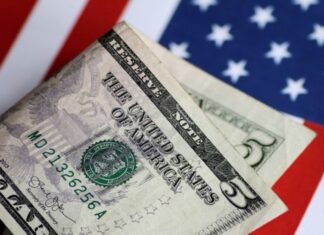
![8 Things to Do in Afghanistan [Best Places to Visit] metaverse app, metaverse facebook, metaverse crypto, metaverse zuckerberg, metaverse game, metaverse login, zuckerberg stuck in metaverse, mark zuckerberg stuck in metaverse, live longer for 150 years in metaverse, shib metaverse, gundam metaverse, shiba metaverse, shiba inu coin, shiba inu metaverse, shiba inu, metaverse fashion week, shiba metaverse land, mark zuckerberg, mark zuckerberg metaverse, how to make money in the metaverse, zuckerberg metaverse, best metaverse stocks, metaverse logo, nvidia stock, buying real estate in the metaverse, how to invest in the metaverse, bitcoin, metaverse login, how to buy land in metaverse, metaverse headset, how to invest in metaverse, metaverse meaning, metaverse crypto, metaverse stock, metaverse facebook, metaverse coins, metaverse real estate, metaverse etf, metaverse nft, metaverse login, metaverse pro, facebook metaverse, sandbox metaverse, how to invest in metaverse, mark zuckerberg metaverse, best metaverse crypto, how to buy land in metaverse, roundhill ball metaverse etf, roblox metaverse, top metaverse coins, apple metaverse, pete davidson net worth, pete davidson kim kardashian, pete davidson instagram, pete davidson ariana grande, pete davidson father, pete davidson tattoos, pete davidson exes, pete davidson wife, pete davidson net worth, pete davidson kim kardashian, pete davidson movies and tv shows, pete davidson instagram, pete davidson height, pete davidson ariana grande, simon rex, kenedi anderson american idol, bebe rexha, billy ray cyrus, pete davidson roast 9/11, walker scobell, is kim kardashian pregnant by pete davidson, tish cyrus, david mamet, wynonna judd, roast of pete davidson, pete davidson bde, is kim kardashian pregnant with pete davidson, kanye pete davidson boxing, phoebe dynevor and pete davidson, north and pete davidson, daphne bridgerton, pete davidson father 9/11, kim kardashian pregnant with pete davidson, cam newton, pete davidson and north west, is pete davidson jewish, pete davidson north, kourtney kardashian, pete davidson dad](https://eurointn.com/wp-content/uploads/2022/04/Band-e-Amir-1024x768-1-324x235.jpg)